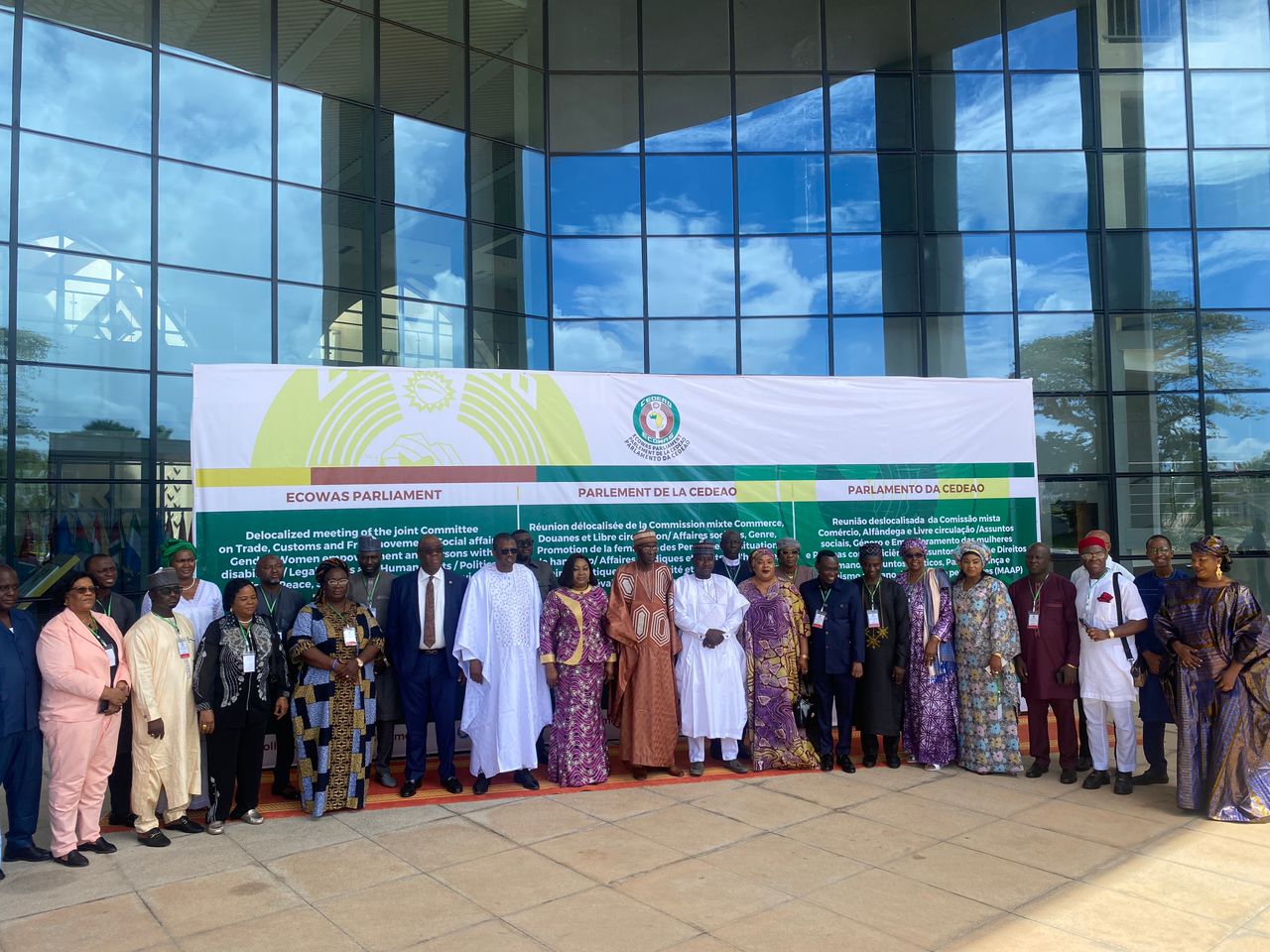The Speaker of the Economic Community of West African States (ECOWAS) Parliament, Hajia Memounatou Ibrahima, has said weaknesses in the implementation mechanism, differences in national interests and infrastructure problems are hindering the implementation of ECOWAS free movement protocol.
Ibrahima disclosed this at the delocalised meeting of the Joint Committee on Social Affairs, Gender and Women’s Empowerment, Legal Affairs and Human Rights | Political Affairs, Peace, Security and African Peer Review Mechanism (MAEP) | Legal and Human Rights | Trade, Customs and Free Movement, on Monday, in Banjul, The Gambia.
“The backbone of the Economic Community of West African States (ECOWAS) undoubtedly remains the promotion of cooperation and integration between its Member States.
“Recognising that free movement is essential to the achievement of regional integration, the Member States adopted, on 29 May 1975, the Protocol on the Free Movement of Persons and the Right of Residence and Establishment in the Region.
- Gombe: Why we can’t start immediate payment of N70,000 minimum wage
- Resident doctors commence warning strike over abduction of colleague
“Indeed, in addition to many other advantages, the Protocol allows ECOWAS citizens to enter and move freely in Member States without a visa.
“They can settle and carry out economic activities, subject to obtaining an ECOWAS card or residence permit. These measures facilitate mobility and stimulate intra-regional trade within our space.
“Despite these advances, considerable challenges remain in the implementation of our own choices. In recent years, free movement within the Community has been severely tested by several factors.
“Weaknesses in the implementation mechanism, differences in national interests and infrastructure problems hinder the achievement of the Protocol’s objectives,” she said.
Ibrahima noted that the full realisation of free movement in the ECOWAS area required strong governance, based on mutual trust, shared responsibility and ownership of results, calling on the body to put in place mechanisms that ensure constant monitoring for more effectiveness of its protocols.
“Undoubtedly, the institution best placed to carry out these audits and ensure this balance within the ECOWAS architecture is the ECOWAS Parliament,” she added.
While declaring the event open, Rt. Hon. Fabakary Tombong Jatta, Speaker of the Gambian National Assembly, noted the role of parliamentarians in the implementation of ECOWAS protocols.
Jatta who said many ECOWAS citizens face significant difficulties moving across borders within the region, said “we must ensure that our national laws are harmonized with regional commitment.
According to him, terrorism, transborder trafficking and other security challenges have combined to hinder free movement within the region, adding that “for our economy to thrive, we need to facilitate free movement of not just goods and services but also people”.
“Our role as parliamentarians is important in addressing these issues and ensuring the successful implementation of the protocol. By focusing on legislative reforms, oversight and advocacy, we can help raise the banners to free movement and create a more integrated and prosperous ECOWAS region,” he said.
He charged the committee to focus on resolutions that will allow member states to review and amend immigration policies and labour laws affecting free movement in the region.
“There is an urgent need to ensure that our law facilitates rather than hinders the movement of people across the West African borders,” he said.

 Join Daily Trust WhatsApp Community For Quick Access To News and Happenings Around You.
Join Daily Trust WhatsApp Community For Quick Access To News and Happenings Around You.


